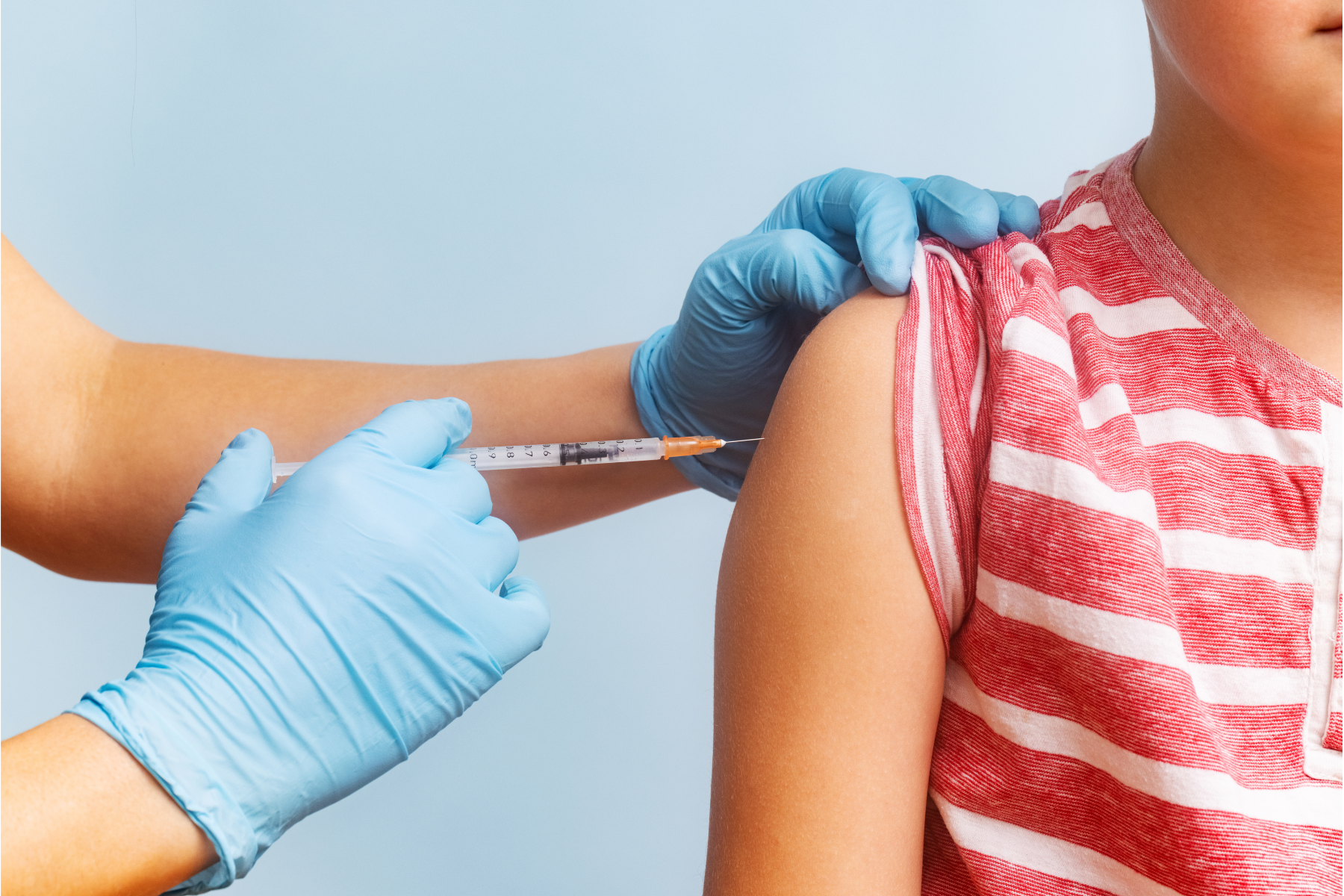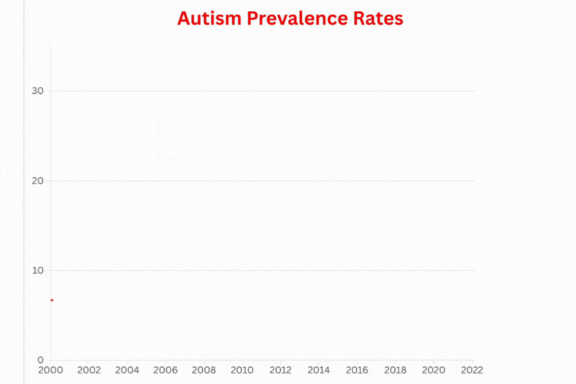
Autism, Tylenol, and Pregnancy:
Separating Fact from Fear
translating sensationalism into science for worried parents
By Meghan H. Puglia
24 September 2025
If you’re pregnant and panicking over this week’s announcement about Tylenol, I get it.
I’ve been there.
When I was pregnant with my second child in 2022, lawsuits claiming Tylenol caused autism were all over the news. And yes, like you, I felt a jolt of fear.
Pregnancy is already a time when every decision feels high-stakes, and suddenly even the safe, go-to medication was under fire.
Luckily, I had access to the scientific evidence behind those headlines. I dug into the studies, I talked with my OB, and I understood what was solid, what was shaky, and what was simply speculative. That perspective brought me peace. And it’s the perspective I want to share with you now, because the truth matters more than ever when fear is driving the conversation.
So let’s step back and unpack what we know, what we don’t, and why debunked claims linking safe medical treatments to autism keep making a comeback.

Before we can talk causes for the “autism epidemic,” we need to ask the basic question:
Are autism rates actually increasing?
The answer boils down to:
How autism is defined:
Autism can’t be diagnosed with a blood test or brain scan. Diagnosis is based on behavior, and the criteria have changed over time.
That means “autism” in 1990 isn’t exactly the same as “autism” in 2025.
How autism rates are measured:
In the U.S., the CDC tracks autism through the Autism and Developmental Disabilities Monitoring (ADDM) Network. The ADDM doesn’t examine every child nationwide; instead, every two years it collects detailed information from the medical and school records of 8-year-olds in selected communities across multiple states. These data are then used to estimate prevalence–the proportion of children who have autism–for the broader population of 8-year-olds, taking into account differences in reporting, access to services, and local demographics.
&
What the numbers show:
Prevalence has risen from about 1 in 150 children in 2000 (the first year the ADDM began tracking autism) to about 1 in 31 today.
That’s a big increase, but it doesn’t mean autism is suddenly exploding.
Why the increase?
Experts estimate that roughly 25–60% of the rise comes from greater autism awareness, better screening, and broader diagnostic criteria. Research suggests there is also a genuine increase in autism prevalence, but it’s layered on top of changes in how we recognize autism, not a sudden epidemic.
Understanding these trends is crucial, because headlines about “rising autism rates” often fuel fear-based claims linking autism to vaccines, medications, or other exposures.
Autism doesn’t have a single cause. In fact, many experts now suggest it isn’t a single condition at all, but a group of related syndromes with overlapping features and different underlying pathways. These conditions emerge from a complex interplay of genetics and environmental factors during brain development.
What Causes Autism?
Genetics:
Autism is highly heritable. Hundreds of genes have been implicated, most related to how brain cells communicate, form networks, and organize. There is no single “autism gene” that explains the condition(s); rather, many genes contribute small effects that interact with each other and with environmental factors.
Environment:
“Environment” is a broad term that includes anything outside a person’s DNA that can influence development. In the context of autism, this can include factors during pregnancy (such as maternal health or infections), parental age, complications like prematurity, and early-life experiences. These factors don’t determine autism on their own, but they can nudge the likelihood of autism when combined with genetic risk factors.
Why this matters?
Framing autism as the product of both genes and environment helps explain why rates can shift over time, why no single factor is “the cause,” and why oversimplified claims (like blaming one medication) are misleading.

Autism and Tylenol: What’s the Story?
Now onto the question making headlines again:
Where it started:
In the 2010s, some studies observed that people who took Tylenol (AKA acetaminophen) during pregnancy were slightly more likely to have children later diagnosed with autism or ADHD. However, these studies had some important limitations:
Retrospective Design: Most of these studies looked back at past data, meaning they relied on participants' memories or medical records to determine Tylenol use. This approach can be less reliable than tracking information in real-time.
Diagnosis confirmation: Autism diagnoses were often based on existing medical records or parental reports, which can vary in accuracy.
These were observational studies, which look for patterns in existing data. They can spot a link, but cannot prove one thing causes another.
The lawsuits:
In 2022, media coverage exploded after lawsuits were filed claiming Tylenol caused autism, based on these same observational studies. In December 2023, a federal judge dismissed the lawsuit, ruling that the evidence linking Tylenol to autism wasn’t scientifically strong enough to support the claims.
What we know (and don’t):
So far, there’s no high-quality evidence that Tylenol causes autism. The small associations seen in past correlational studies could easily be explained by other factors–like the fever, infection, or pain that led someone to take Tylenol in the first place. More recently, larger and more rigorous studies have found no association.
Medical guidance:
Here’s what doctors continue to recommend:
Use the lowest effective dose for the shortest necessary time.
Talk with your doctor, because there’s no one-size-fits-all advice in pregnancy.
Remember: untreated fever or pain carries real risks for both mother and fetus.
Bottom line?
Tylenol remains the safest option we have for managing pain or fever during pregnancy.

Autism and Vaccines: Why Won’t This Claim Die?
If the Tylenol claims feel new, the vaccine-autism debate is a reminder that fear-driven headlines can resurface for decades, even when evidence is clear.
Where it started:
In 1998, a small, deeply flawed study claimed a link between the MMR (measles, mumps, rubella) vaccine and autism. The study was later withdrawn by the journal and the author lost his medical license due to serious ethical concerns and scientific misconduct. Since then, dozens of large, rigorous studies have found no link between vaccines and autism.
What we know:
Vaccines do not cause autism. Full stop.
Why it keeps resurfacing:
Fear sticks. When faced with uncertainty, parents naturally grasp for something tangible they can control to keep their children safe. And the timing feels suspicious, since vaccines are given before autism is typically diagnosed– making the link seem plausible even though it’s purely coincidental.
The cost of misinformation:
Every time this claim resurfaces, parents are left with unnecessary anxiety, vaccination rates dip, outbreaks of preventable diseases return, and innocent children unnecessarily die.

Why This Matters for Parents and Public Trust
Here’s the danger of fear-driven headlines: they don’t just spark anxiety, they can push parents toward harmful decisions.
Skipping Tylenol might sound “safer,” but untreated fever and pain in pregnancy carry real, documented dangers. A “tough it out” approach threatens the health of both mom and baby.
Skipping vaccines leaves kids vulnerable to measles, whooping cough, and other life-threatening illnesses.
Public health depends on trust. When lawsuits, politics, or clickbait overshadow science, that trust erodes and leaves parents navigating pregnancy with more fear than facts.
Pregnancy is hard enough without sensational headlines that push science-refuted “medical” advice.
Here’s what to remember:
-

Autism is complex
It’s likely a constellation of syndromes shaped by both genes and the environment, with no single cause.
-

Autism rates appear to be rising
But much of the increase comes from better recognition and diagnosis.
-

Tylenol remains the safest option
for pain and fever in pregnancy when used as recommended in consultation with your doctor.
-

Vaccines do not cause autism
No matter how many times that myth resurfaces.

So what can you do?
Talk with your doctor.
Rely on trusted sources.
And remember: science is still learning, but following evidence-based guidance, like using Tylenol safely and keeping vaccinations up to date, helps protect both you and your baby.






